Equipment management of automatic production line in feed fa
Posted by Animall Feed Blok Making Machine | updatetime 2020-07-15 17:01
Equipment management of automatic production line in feed factory 2
2.3 Lubrication and adjustmentLubrication can generally be divided into regular lubrication and special lubrication after equipment inspection. Regular lubrication is generally based on the requirements of the equipment manual, equipment export recommendations and the plant equipment use strength and manager's work experience to develop periodic lubrication. Generally, annual lubrication and quarterly lubrication can be formulated. After daily and monthly inspections, the equipment manager requires special lubrication of the equipment and adjustment of necessary equipment parts according to work experience. To prevent accelerated deterioration of the equipment. Some high-temperature or heavy-load equipment must be specially lubricated. For example, the pressure roller bearing of the granulator must be lubricated once per shift, and the spindle bearing should be lubricated once a week. Generally, general industrial grease is used. It is best to lubricate the main shaft bearings of the grinder every 2 weeks, generally using aluminm disulfide grease.
2.4 Production equipment analysis meeting
Production and equipment management personnel must anayze and summarize the status of production and equipment weekly or monthly. Summarize the completion of the work plan last week or last month and explain the reasons for the unfinfished plan. Formulate specific work directions and specific contents of maintenance and security plans for next week or next month. Participants must put forward their views and let different views collied so that managers can finally determine the best plan. Regardless of whether the views of the participants are different from the decision, but the decided plan must be strictly implemented. Of course, each manager must send the weekly or monthly work report to the manager of the department, and also copy to other relevant department managers and managers or leaders of the upper level. Its purpose is promote the accuracy of their work and ensure the smooth flow of information channels.
2.5 Management and support maintenance of spare parts
Equipment managers should promptly capture the imformation of spare parts from daily maintenance records and morning repair meetings, daily walking equipment inspection, weekly and monthly production equipment meetings, and spare parts safety inventory. Prepare plans in time to ensure that various tasks are completed in a timely manner.
2.5.1 Spare parts inventory principles
① Commonly used spare parts, wearing parts, spare parts with a long purchase period and impored parts must have a certain safety stock. Make purchase plans and applications for parts that are below safety stocks monthly or weekly. Supplement as early as possilble to repair without accessories; ② Infrequently used, low-priced accessories that can be purchared. It can also be used as a small amount of inventory; ③ The accessories that are not commonly used at higher prices but can be purchased in time can be contacted by multiple dealers so that can be delivered in time when needed.
2.5.2 Spare parts classification and purchase of spare divided into bearings, electrical, electronic, hardware, machinery, computers, machine screens, ring molds, pressure rollers, belts, nylon bucket plastic products, seams manufacturing accessories. Machinery processing plant category, equipment production group company category. General accessories can be purchased by category, and there are preferably two suppliers in each catagory, so that prices can be compared at any time. Suppliers who cooperate with each other for a long period of time can pay after supplying goods, and the qualiy of accessories is relatively stable. However, for the selected supplier, we should visit it every certain time to cherk the stability of the price and quality of the accessories. In the case of small parts purchases, qualified companies can use group procurement to ensure the quality and price of parts. For parts with low usage and low prices, quality is the priority. In the process of negotiating the purchase of accessories, after negotiating with a large number of manufacturers, those who have certain purchasing skills can generally know the approximate production and sales prices of the accessories. This is very helpful for the batch purchase of ring die, pressing roller, crushing roller, siever and hammer. For the group campany, the procurement status of spare parts, each factory is best to exchange information once a month, and copy to the corresponding leaders, so that each factory can get the best price, rich information and the most stable quality products. And can increase the transparency of work and promote mutual work.
2.6 Maintenance actions
With sufficient information, adequate acceccories and a comprehensive preventive maintenance plan. We have laid a solid foundation for the maintenance and security actions next week and next month. Preventive maintenance is arranged as much as possible during non-production hours. This can improve the work efficiency and personal safety of maintenance personnel. After the repair is completed, try to run the repaired equipment as much as possible to ensure that there is no problem during the official production and does not affect the normal production. During the production shutdown and maintenance, the maintenance plan must be well-planned, and production and maintenance must be closely coordinated. Before maintenance, repair parts and related personnel must be in place, turn off the power switch and lock, hang the maintenance card, to ensure quality. Under the premise of safety and personnel, the maintenance time should be shortened as much as possible. After the repair is completed, the relevant personnel are best to test the equipment on site. After the equipment is normally produced, the maintenance is considered to be over. In this way, the equipment can be improved and restored before it deteriorates.
2.7 Good operating skills to ensure the normal operation of the equipment
Operators are one of the guarantees for the normal operation of good products and equipment. To produce high-quality products, there must be an industrious operator who loves to abide by rules and regulations. The training of operators is not only a few months of training when entering the factory but also a lifetime training. Production and equipment managers should turn 80% of the orders into training, let them know not only to master the knowledge and technology of production and equipment in pratice, but also theoretically master the relevant knowledge of production and equipment, and let them continuous development from practice to theory, and then from theory to practice. In order to make continuous progress of the employees in the production department, it is very necessary to conduct cross-job training. Post-cross training can make employees feel a certain pressure, promote their internal work motivation, and stimulate employees to create a sense of innovation. Every production employee in this process can master a variety of operating sklll. At the same time, managers must create a good working environment for them. Let them constantly pursue high-quality and efficient production; let them dare to challenge the quality, output and equipment maintenance every day! The policies formulated by managers must also allow them to contibuously improve and succeed. Only in this way will our equipment show real value.
2.8 Assessment of the maintenance department
In order to promote the efficiency of maintenance work and ensure the good operation of the equipment, the maintenance department should carry out the necessary assessment. The assessment is mainly from three aspects: 1. The ratio of the time of interruption of production to the entire production time due to the sudden failure of the equipment every month. Plants with better equipment and better management are generally 4% to 8%. Generally, small and medium-sized factories are 9% to 15%. The purpose is to ensure the continuous operation of the equipment; 2. The ratio of the hours of preventive maintenance in the monthly maintenance department to the total hours of maintenance work in the maintenance department. The factory with better management should be around 70% (the maintenance plan must be submitted to the next level of the leading department on the 1st of each month), the purpose of which is to ensure the long-term stable operation of the equipment; 3. the cost of maintenance parts must be controlled during the monthly maintenance work and the efficiency of maintenance personnel (except equipment modification fees). The direct cost of general maintenance is about 10% of the total production cost. These aspects can be linked to the salaries and honors of maintenance personnel to promote work. The contents of the assessment and the aeeseements of other factories of the group company must be reported to the higher level at the same time each month, the purpose of which is to keep the maintenance department moving forword.
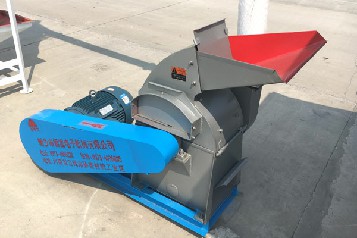
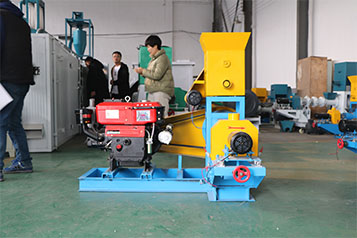
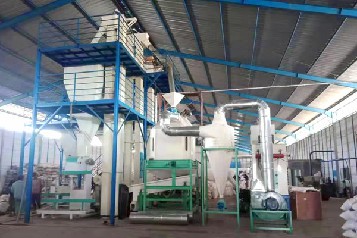
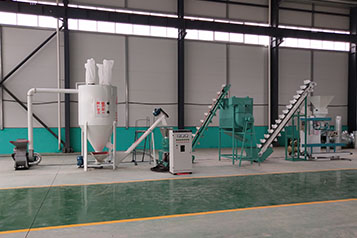
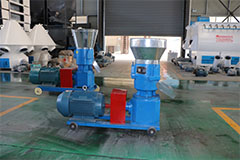


Leave your comment Here